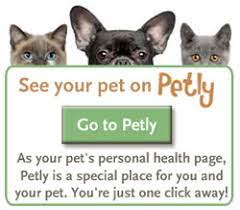Office HoursMonday: 8:00 am to 5:00 pm Tuesday: 8:00 am to 7:00 pm Wednesday: 8:00am to 5:00pm Thursday: 8:00 am to 7:00 pm Friday: 8:00 am to 5:00 pm Saturday: Closed Sunday: Closed In the event of a medical emergency outside our normal business hours please visit: Contact Us-Emergency Information In honor of Memorial Day our office will be closed Monday, May 27th 2024.
|
|
Site powered by Weebly. Managed by IDEXX Laboratories







